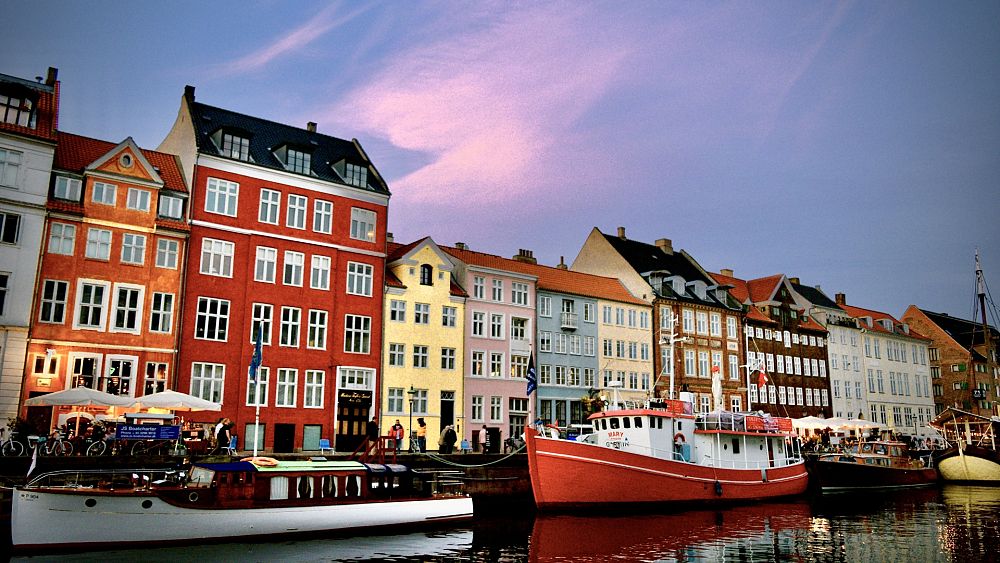
By Elaine Burke
Denmark is a happy place to be. At least, that’s according to the 2023 World Happiness Report, which ranked the Nordic nation as the second-happiest country in the world.
A previous study from Boston Consulting Group and Digital Hub Denmark also indicated the country’s digital workers were quite happy, with survey respondents demonstrating their satisfaction with the country’s workplace culture and financial support.
“To many international digital talents, Denmark is an overlooked destination,” said Claudia Bruyant Ndege, who led the study for Boston Consulting Group.
“But we can see that the digital talents who find their way to Denmark are basically really happy with their work lives”.
Denmark’s work culture
Workers in Denmark benefit from both a flexible working environment and a social security safety net.
The offshoot of the latter is that taxes are high, as is the cost of living, but that’s a compromise many are satisfied to make for the standard of living and quality of public services available there.
Denmark has one of the highest employment rates in Europe, and a work culture that values work-life balance.
The latest OECD Better Life Index determined that only 1.1 per cent of Danish workers work very long hours and that the average worker spends almost 16 hours per day on leisure and personal care.
The average work week in Denmark is 37 hours with five weeks of paid time off per year, and the average annual income is also above the OECD average.
All of this stands to make Denmark attractive to workers, and the country has also been successful in attracting major employers.
For seven years in a row, the World Bank named it the best country in Europe for doing business and the likes of IBM, Microsoft, Oracle and SAP have all established innovation and development hubs there, alongside Danish-born tech players such as Unity Technologies, Zendesk and Just Eat.
Copenhagen’s tech ecosystem
Naturally, a number of these major companies chose to set up shop in Copenhagen.
Though it’s the most populous city in Denmark, the capital is modest in size by international standards with an urban population of around 1.4 million.
The advantage of a small city is the opportunity to connect with people, both personally and professionally.
For the business world, Copenhagen facilitates networking with a number of co-working spaces, start-up hubs and industry events.
Coming in September is the annual TechBBQ, a two-day event for entrepreneurs, investors and tech talents.
This event welcomes the tech industry from across Scandinavia, while November’s Digital Tech Summit brings the industry together with academics and researchers.
It’s no surprise, then, that Copenhagen is the centre of Denmark’s start-up ecosystem and, according to the 2023 Global Startup Ecosystem Index, hosts about two-thirds of the country’s start-ups.
This includes fintech unicorns Pleo and Lunar, business software player Templafy, e-learning provider Labster and HR-tech start-up Peakon (which was acquired by Workday for $700 million).
Focus on sustainability
As a nation, Denmark takes sustainability seriously, and demands this from its business ecosystem in kind. It was ranked the most sustainable country in the world in both 2021 and 2022, per the Environmental Performance Index.
Biking is encouraged as the best way to get around the capital city, and you’re more likely to find a Dane that owns a bicycle than a car.
More than three-quarters of the country’s electricity comes from renewable sources and its government has set climate targets higher than the EU’s Green Deal.
To help achieve these ambitious goals, the Danish government is throwing its support behind technologies such as carbon capture and renewables, and those that support a green transition.
This is why green tech is emerging as a key sector across the country, and in the innovation hub that is Copenhagen, a factor that can influence today’s environmentally-conscious workforce.
Demonstrating the capital’s leadership in this area, the Copenhagen Cleantech Cluster merged with the national Lean Energy Cluster to form CLEAN, the industry consortium chosen by the government to push the green transition for Danish companies and connect them with global innovators in this space.
Denmark also has a substantial life sciences sector including hundreds of biotech businesses.
Copenhagen is at the heart of this as the site of Medicon Valley, a life sciences cluster that spans its greater metropolitan area and extends into southern Sweden.
Medicon Valley is home to hundreds of biotech, medtech and pharma companies, as well as a number of science parks and incubators.
Another thriving sector in Denmark is fintech, and Copenhagen has a rich history in financial services that has seen it take a lead on digital transformation.
As the country moves toward a cashless society, the greater Copenhagen area has become home to fintech businesses spanning security, optimisation and investment software.
Search for jobs available in Copenhagen, and across Europe, on the Euronews jobs board
